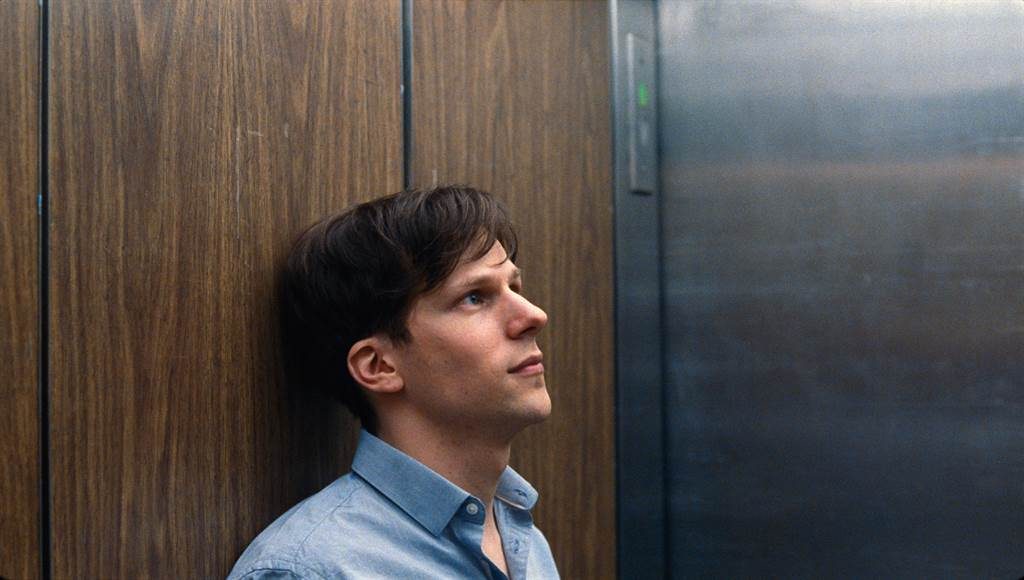Louder Than Bombs (2015)

Danish-born, Norwegian-raised filmmaker Joachim Trier (Oslo August 31, Reprise) directs and co-scripts his first English-language film in Louder Than Bombs, a thoughtful examination of how perceptions of reality are often far from accurate, even among people who feel they know one another quite well.
Gabriel Byrne (The 33, Vampire Academy) stars as Gene, a widower high school teacher trying to establish a firm connection again with his two sons, Conrad (Druid, Disgrace)and Jonah (Eisenberg, Batman v Superman), over two years after the death of his award-winning war photojournalist wife’s death in a fatal car accident. A museum gallery wants to show some of her previously unpublished work she may have left behind, and her former colleague Richard (Strathairn, The Second Best Exotic Marigold Hotel) at the New York Times would like to run a piece about the exhibit, as well as about her life, including the tidbit that the accident may have actually been a suicide. Gene knows he must tell his younger son, the troubled and mostly withdrawn teen Conrad, before it becomes public knowledge, while eldest Jonah, who ends up visiting following the birth of his own son to sift through the photographs to hand over to the museum, thinks his dad should stop them from mentioning that part of the story altogether, which he denies the validity of.
Louder Than Bombs is a slow-moving, observational drama that seeks truth, not through long speeches or volatile arguments, but through smaller, more contemplative touches, as well as in fragments of reflective narration from several points of view among the characters on the screen. Characters are flawed and not entirely easy to connect with, though this aspect does work well in its reflection on how a family can perpetuate their own dysfunction through difficulties in how to communicate, as well as engaging in self-destructive acts in the wake of a tragedy that they’re still not quite ready to put in the past. Each one of the members of the family does some fairly despicable things, but Trier sees them as what they are, human character flaws that many of us are capable of falling to in the right, or I should say wrong, circumstances.
The nonlinear plotline dips into flashbacks from time to time, and even shades those flashbacks with conjecture on the part of the person who is thinking about those events from a speculative perspective. It also weaves in a few dream sequences that divulge even more the state of mind of those involved in a surreal fashion, though never in a way that breaks the reality of the film into overwrought artifice. It’s a bit messy and disjointed because life is messy and disjointed, and even when someone thinks they have the capability of putting oneself in another character’s shoes, the richly developed characterizations show that no single person truly gets someone else’s thoughts, feelings, or composition of character through and through, which adds to the chasms of emotional distance between them.
Just as the mother, Isabelle (Huppert, The Disappearance of Eleanor Rigby), explains to her children that often pictures tell different stories depending on how one frames them, so too does how one perceives others, depending on what piece of new information one finds out, or what one has been left out of the equation, forcing conjecture. Conrad writes a journal that reveals more about himself than anyone in the world could possibly know, which he intends to share with the girl at school he harbors a crush on (Jerins, Shutter Island), though he knows almost nothing about her other than what he observes from afar. He doesn’t really want to know, spending more time playing an online video game persistently at home or wearing large noise-canceling headphones as he traverses from place to place. Meanwhile, Jonah reconnects with an old girlfriend (Brosnahan, The Finest Hours), giving her only a fragment of information about his life, which she uses to make assumptions he does not dispel, only because he enjoys, however briefly, the connection they’ve made. This also forces him to shade the truth, or outright lie, to his own wife (Ketch, “Jane the Virgin”), as to why he isn’t returning home to be husband and father right away, playing for a moment, like his mother, in the escape from one world into another, even though he knows it is only a temporary thing.
It would seem an odd collection of thespians to put together as a family, but they work quite well for the material. As with its characters, there’s more than meets the eye in Louder Than Bombs, which offers plenty of surprising and poignant aspects that make it of interests as it begins to peel back the layers of the deep-seated family history. It’s the kind of film that used to be made with more frequency by Hollywood, most notably in Ordinary People, which, perhaps not coincidentally, also contains a depressed and emotionally numb young man named Conrad. While there are no easy roads, and happiness always seems out of reach, there’s always a degree of hopefulness to Trier’s philosophical handling of the story, and it never quite goes places where you’d suspect it is headed from the outset. Whether making films in Europe or America, Trier’s definitely a director worth watching for in the future.
Qwipster’s rating: A-
MPAA Rated: R for language, some sexual content, nudity and violent images
Running Time: 109 min.
Cast: Gabriel Byrne, Isabel Huppert, Jesse Eisenberg, Devin Druid, Amy Ryan, David Strathairn, Megan Ketch, Rachel Brosnahan, Ruby Jerins
Small role: Charlie Rose
Director: Joachim Trier
Screenplay: Joaquim Trier, Eskil Vogt
